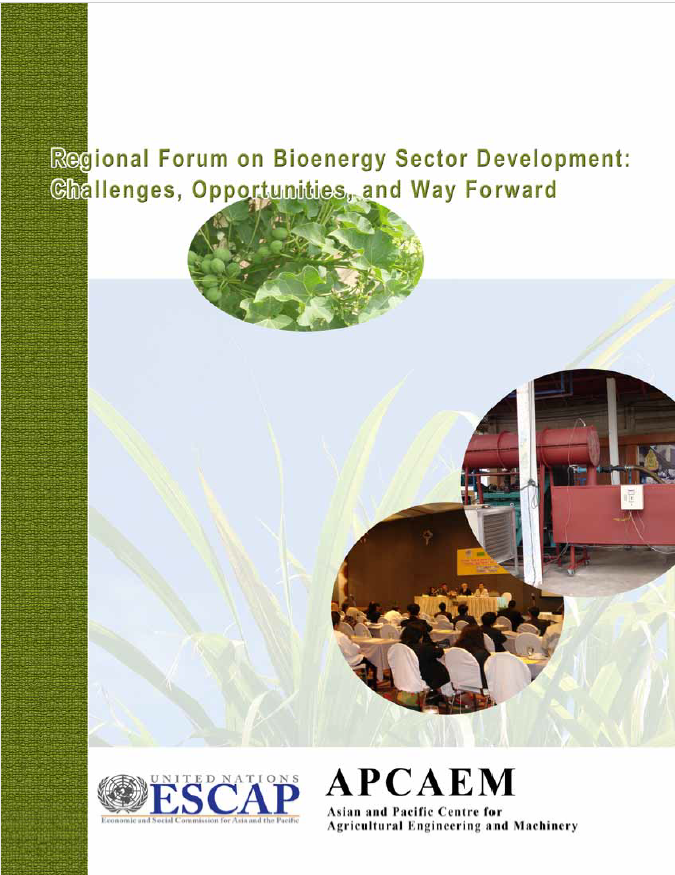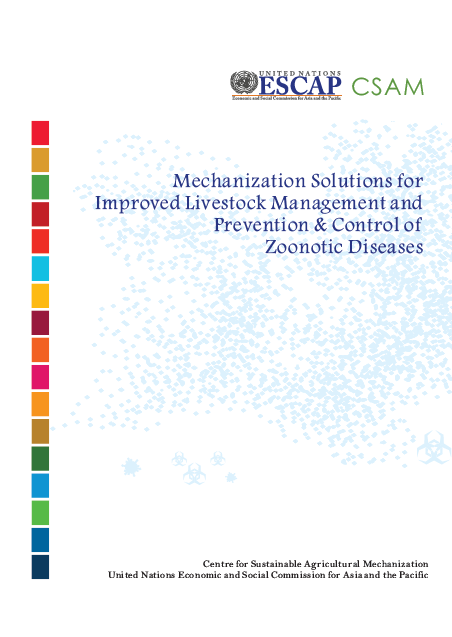
Straw burning is a common concern for agriculture in many countries in Asia and the Pacific. The paper is a demand-driven initiative in response to the pressing need of member countries to address straw burning and supporting their efforts to achieve the relevant Sustainable Development Goals, in particularly, SDG 13 (combating climate change) and SDG 15 (life on land) through prevention of burning, conservation of soil and restoration of degraded land. The paper provides an overview of the status of straw management in three sub-regions, namely, East Asia, South Asia and Southeast Asia, and the available and proven practices/technologies of straw management in these sub-regions. An action plan for pilot interventions for integrated straw management is also presented in the paper which provides guidance for CSAM’s regional initiative on integrated straw management.
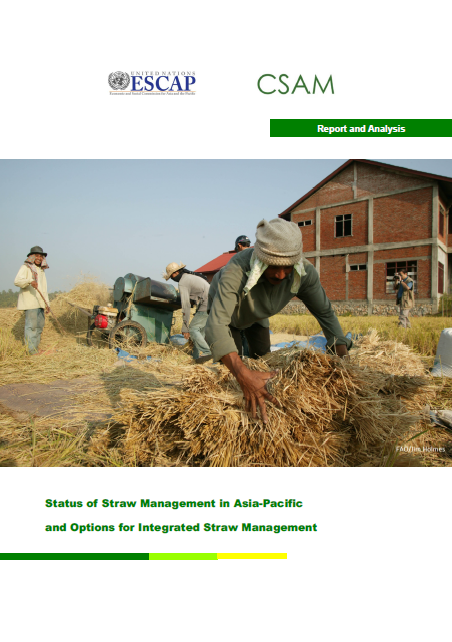
This training manual aims to strengthen capacities of key stakeholders to address some of these constraints and has been produced by the Centre for Sustainable Agricultural Mechanization under a project supported by the Livelihoods and Food Security Trust Fund (LIFT). We sincerely hope that it will serve as a valuable knowledge resource for relevant stakeholders to jointly create and improve the enabling environment for custom hiring of agricultural machinery and to support climate-resilient agriculture in Myanmar’s Dry Zone.
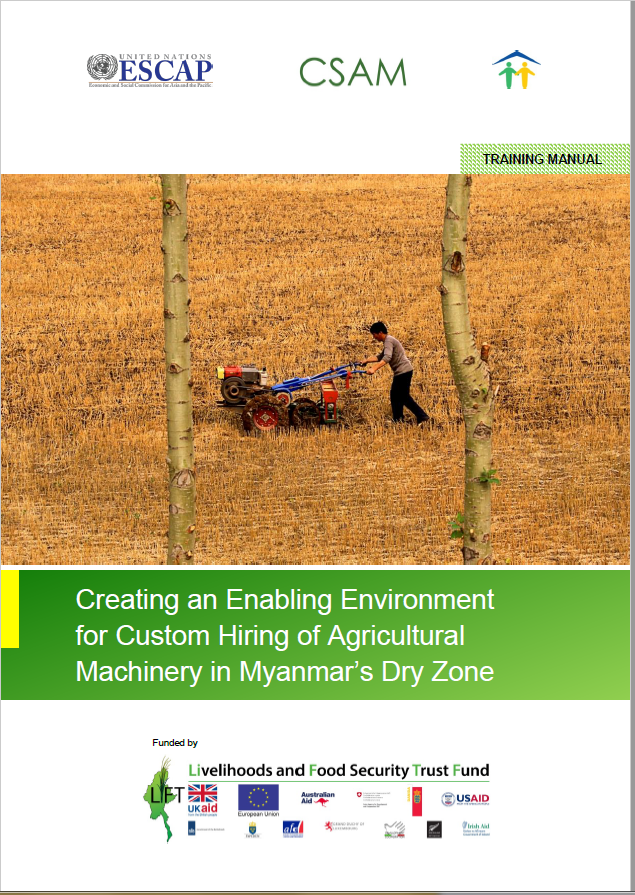
This synthesis report comprises of the proceedings of the Asian and Pacific Workshop on Whole-process Mechanization of Potato Production, held on 27-28 June 2016 in Kunming, China. It has been prepared by a team at the Centre of Sustainable Agricultural Mechanization (CSAM) under the overall guidance of Dr. Li Yutong, Head of CSAM. The original presentations and speeches were provided by the respective participants/speakers.
Special thanks go to Dr. C.R. Mehta, Project Coordinator of Central Institute of Agricultural Engineering of India for giving assistance to proofread the country reports. Highly appreciated the efforts of the CSAM team led by Anshuman Varma including Ianina Kalinich, Feng Yuee, Zhang Xinyi, Agustin Grizia, Yidan Xu, Inès Benachir for summarizing, compiling, and proofreading the proceedings. CSAM is also grateful to Huajie Sun for the layout and design of the report.
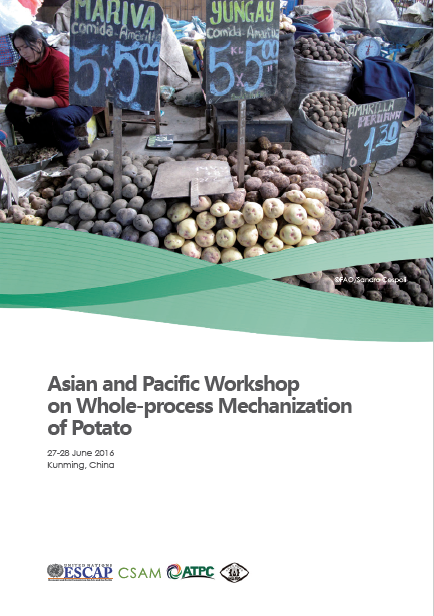
This report is a part of a series of case studies produced by the United Nations Economic and Social Commission for Asia and the Pacific to undertake mapping of relevant stakeholders and assessment of their interventions in the Dry Zone as well as analyse policies, institutions and processes for areas that are important for the sustainable development of the Dry Zone. Based on multi-stakeholder consultations conducted in Myanmar, the case studies have focused their attention on the following areas: (i) Value chains for seed development for pulses, legumes and oil crops (ii) Agricultural mechanization development (iii) Sustainable agriculture for poverty reduction.
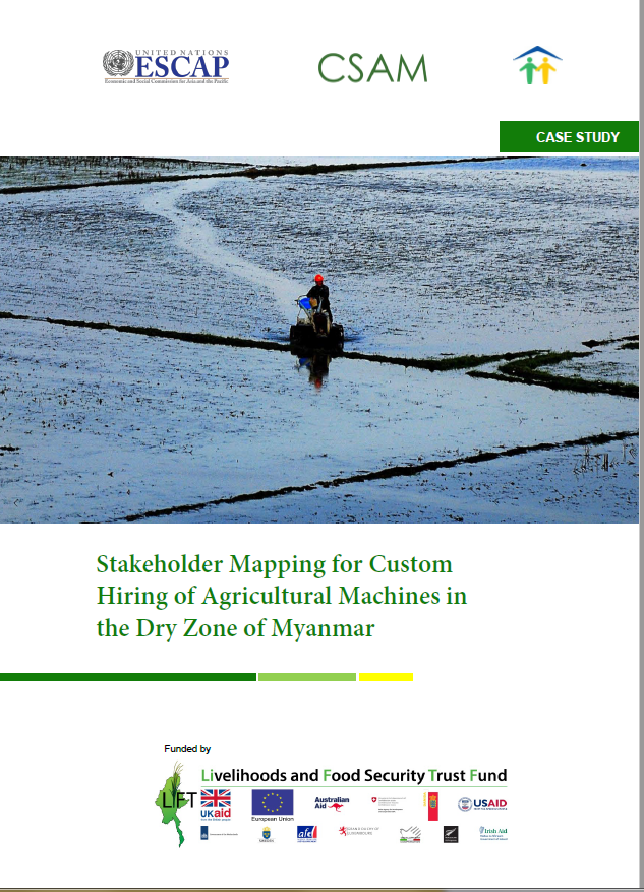
APCAEM conducts the study of the potential of CDM for Conservation Agriculture (CA). THis paper provides convincing evidence of CA developments. It attempts to evaluate the comparative greenhouse impact of traditional and CA cropping systems in China, and speculates on their impact elsewhere. It concludes with a brief discussion of the measures necessary to reduce greenhouse gas production and other modes of environmental degradation by encouraging the adoption of CA. Wish you a lot of informative joy reading this report.
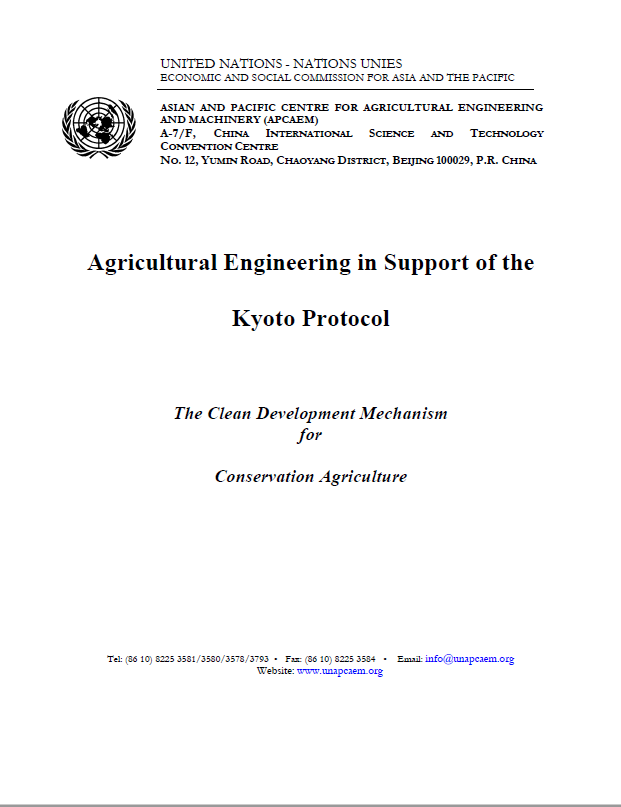
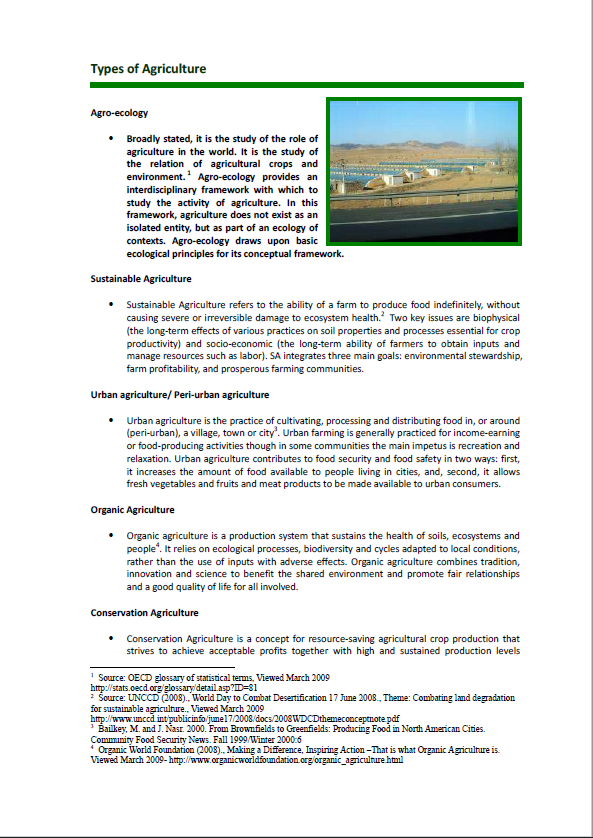
The study thoroughly reviews the laws, regulations and policies of the Chinese government on rural renewable energy development and farmland management, and analyzes the economic benefits of various technologies to assess the additionally of CDM projects in household biogas and conservation tillage. Through study tours and surveys, the authors collected statistical data on household biogas production and distribution, fossil fuel replacement, and conservation tillage development and distribution of technologies to determine and explore the baselines. Approved CDM methodologies and their applicability were collected by the authors to develop methodology guidelines. The study also estimated the emission reduction potentials of CDM projects through case studies.
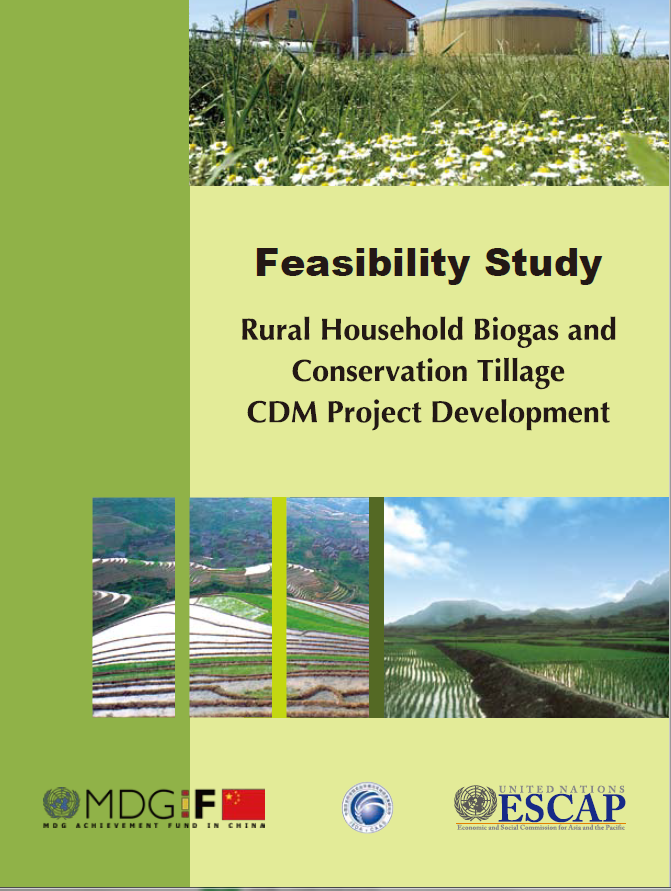
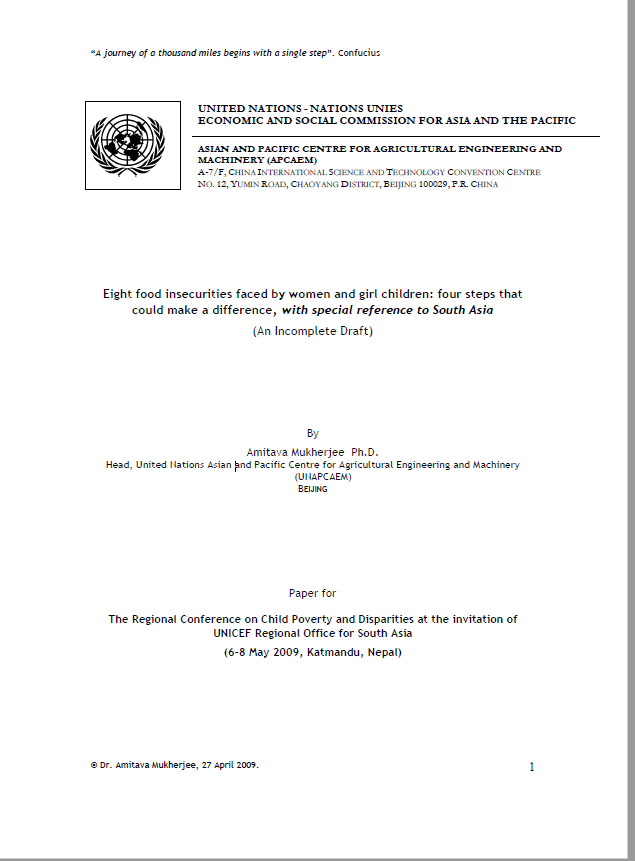
The Regional Forum, focused on four relevant topics on bioenergy development, namely: 1) Biofuels Development in Asia and the Pacific, 2) Biogas and Biomass Development in Asia and the Pacific, 3) Next Generation Technology of Bioenergy, and 4) Climate Change and Green Business Opportunities. In the above regard, the following country contributions share diverse experiences, illuminating intricacies, gaps and barriers on bioenergy that can serve policymakers and other stakeholders in developing a more sustainable path that can be a factor for more inclusive economic and social development in our diverse region.
